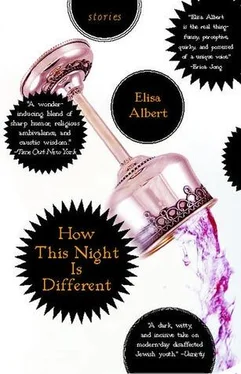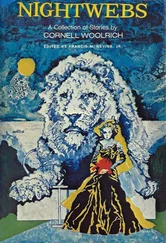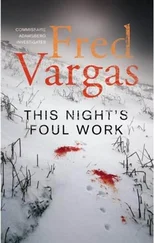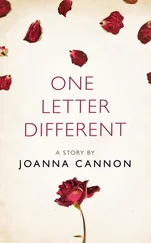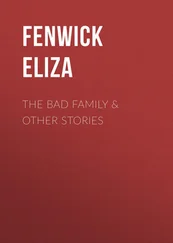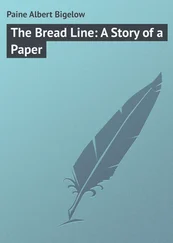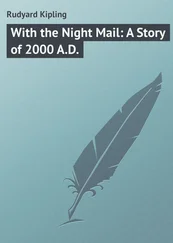half-of-the-twentieth-century of American Jewry for my own sexual liberation at the hands of (mostly) non-Jewish men, and there you have a rather interesting parallel in terms of our collective eventual appreciation of the writer Philip Roth, no? At present writing, The Plot Against America is number one on the Los Angeles Times best-seller list. Mazel tov.
So. I am a young Jewish writer who idolizes you, cherishes your books, and reads them slowly, considers you the father of us all. Ah, yes: the father of us all — but not actually a father yourself, Philip, so far as I know. Why is that? Do you yourself know? Is there an answer? I realize that life is more complicated than that, but still, I wonder. Again and again I find evidence of child longing in your books. In The Counterlife, especially, our tenuous link, we find pregnant Maria aglow with Zuckerman’s life growing inside her, the narrative changing and changing until she vanishes from reality, taking Zuckerman’s potential offspring with her. When she reappears at the end of The Facts, she’s still pregnant (more so, even), but there is no fruition, no birth.
And in American Pastoral, there’s our man Zuckerman at his fortieth high school reunion, reporting (obsessively?) on the names and ages of his classmates’ children and grandchildren. “I seemed alone in having wound up with no children, grandchildren, or…‘anything like that,’” he says. And one former classmate regards Zuckerman’s reality with what I found to be the saddest two words in that whole tragic book: “Poor Skip.” Poor Nathan, poor Philip.
Nihilistic Mickey Sabbath, too, adds his voice to this sad chorus, commenting on the fact of his having “never [been] blessed with children,” and, furthermore, “children never blessed with [him].” (p. 326)
And what’s that? Alexander Portnoy? Speak up! “Why then do I live by myself and have no children of my own?…What have I got to show for myself?…Children should be playing on this earth who look like me!” (p. 229)
Bloom, discussing your happier times together, recalls your regret that you hadn’t married earlier, when you and she “might have had a child” together.
Perhaps it’s my own baby longing that effects mere projection here. Perhaps I am just blinded by my own maternal desperation. I’m twenty-six, Philip. That must seem impossibly young to you — I am, after all, almost half a century your junior — but I don’t feel particularly young. I recently broke up with a guy (the aforementioned fiancé) I thought I’d be with forever. I am the youngest child of rapidly aging parents who have no grandchildren. One of my older brothers is dead, the other is useless. I have a condition (thanks to the aforementioned fiancé) that predisposes me toward cervical cancer (no one knows this, Philip; no one except for my gynecologist and now you). I feel doomed. I feel done for. Do you know what I mean? Or do I seem shortsighted and utterly without perspective? I wonder sometimes if my pessimism in this regard is related to the despondent logic that disallows me from reading and carrying around and “wearing out” my signed copy of The Counterlife. No, twenty-six is not seventy-six. If all goes well (but why should it?) I have a great many years still folded unsullied before me. Books are for reading. Clothes are for wearing. Life is fatal for all of us. Sound wisdom, sure. But I feel ripe; I feel about to rot.
What happened with my fiancé, if you must know, is that he flipped out about his representation in my fiction. He looked for himself in all of it, and he found himself in all of it. He couldn’t handle it, couldn’t handle me and my big fat Jewess mouth, told me I was judgmental and ungenerous (translation: that I portrayed “him” negatively). I patiently tried to explain that those qualities are the very ones that confer any prowess I may have as a writer in the first place, and that furthermore I was never going to get published anyhow. What’s odd is that I actually always took significant pains to disguise both him and his bizarre-ass family. But he couldn’t see that. He found himself implicated everywhere, in every critically viewed male, on every sarcasm-laced page. He was a self-obsessed infant of the highest order (and here I’m not disguising him whatsoever, finally, but only because no one but you will ever see this). So even though he was also a big hot strapping Jew — and himself a highly successful veteran of my very own terrible Camp Ramah — I chose the fiction over him. Fiction is forever, Philip. I know you agree. Facts dissipate with changed perspective, reality is ephemeral; Viva la Fantasy! I chose my banal stories and the promise of redemption with my precious Shirtwaist Fire girls over a traditional partnership with a terribly limited man next to whom I’d lie awake sobbing at night, horrified by the stultifying limitations of the life I’d somehow chosen for myself.
I had been chipping away in relative secret at my Triangle Shirtwaist novel for almost a year when I found out I was too late. This guy in my workshop, AJ, turned in a story about an ambivalent Jew dressing up as Santa for a Christmastime gig at Macy’s, and talk turned, in much the same way it always does, to the quality and quantity of contemporary Jewish fiction. A British girl commented on all the “similar stories” we MFA kikes persist in composing. She was, ostensibly, referring to all my ten-pagers, all my little Jewish-chick-meets-uncircumcised-dick narratives, to AJ’s tired Jewish Santa, to a guy named Dante’s Leon Uris — inflected action-adventures featuring Shin Bet.
“All your stories are the same,” she said, waving vaguely toward AJ and Dante and me, we representative Jewish writers. This girl was working on a novel based loosely on the courtship and marriage of her great-grandparents in late-nineteenth-century Oxford.
“It does seem like there’s a lot of this kind of thing out there already,” offered a sweet Asian guy helpfully.
“Well, Jews buy a lot of books,” I snapped, somewhat harshly.
“Yeah,” said adorable Andy, my favorite, with a wink. “Jews buy a lot of everything. You have all the fucking money.”
“There’s a big market for Jewish fiction,” Dante said earnestly. On one enormous bicep he sported an elaborate tattoo memorializing the Warsaw Ghetto uprising. “There are a lot of specifically Jewish book awards and stuff.” The English girl looked annoyed, shrugged dismissively.
“I just feel like I read the same stories over and over again from you guys. They’re great and all, but.”
And then it happened. Someone whipped out a copy of Publishers Weekly and we conducted a brief poll, flipping through to informally count up all the reported recent book deals overtly by or about Jews.
Dante, hovering over the issue with the Anglophile, let out a manly squeal. “Jesus H. Christ, what’s the Triangle Shirtwaist Fire? Some woman named Alana Orenstein just got mid — six figures for a ‘genre-busting historical novel’ about it.” The word “FUCK,” which as I’m sure you know is also an emotion unto itself, in all caps, just like that, crash-landed in my brain, in my heart, over my eyeballs, in my bowels. “FAH. UCK.”
What else was I to feel? My whole year, my entire endeavor, rendered pointless. A waste. My brilliant idea, my literary jackpot, my huge undertaking. My Ettlinger portrait, my Vintage trade paperback, my Safran Foer smackdown: all sucked right back out of the realm of possibility as if by some mysterious, capricious, biblical-scale force of weather. Alana Orenstein was probably, at that very moment, sitting for Ettlinger in stark, beautiful, black-and-white half shadow. I’d felt something resembling this large-scale “FUCK” once before, years ago, when I first read Nathan Englander’s heart-wrenching story about an agunah ’s endless electrolysis and had no choice but to bury my own greatly autobiographical burgeoning novella about my own heart-wrenchingly endless hair-removal trials.
Читать дальше
